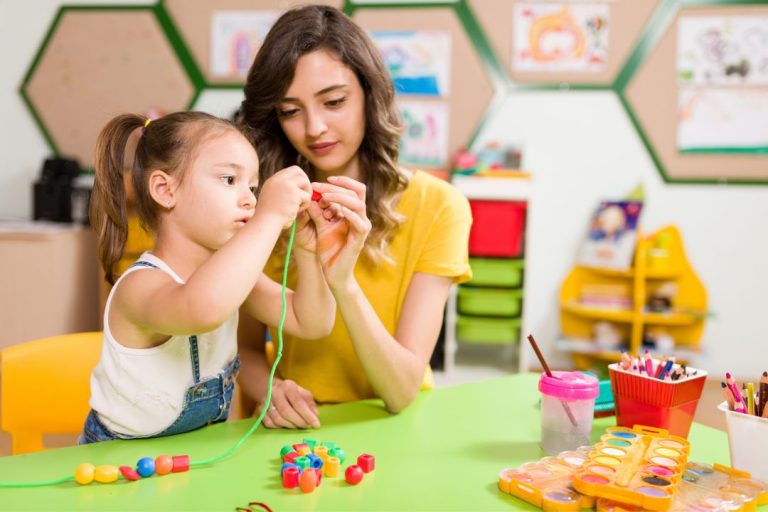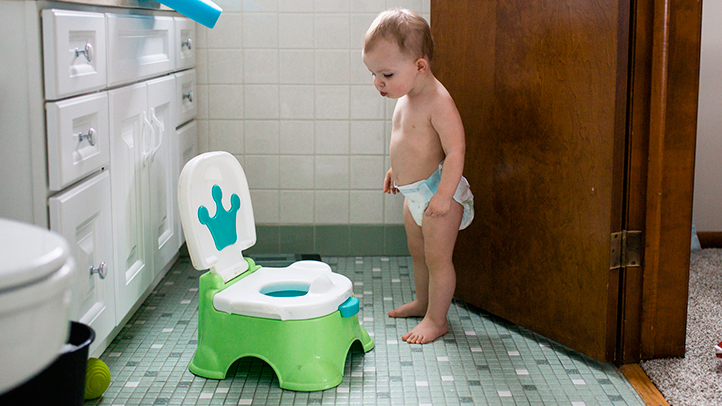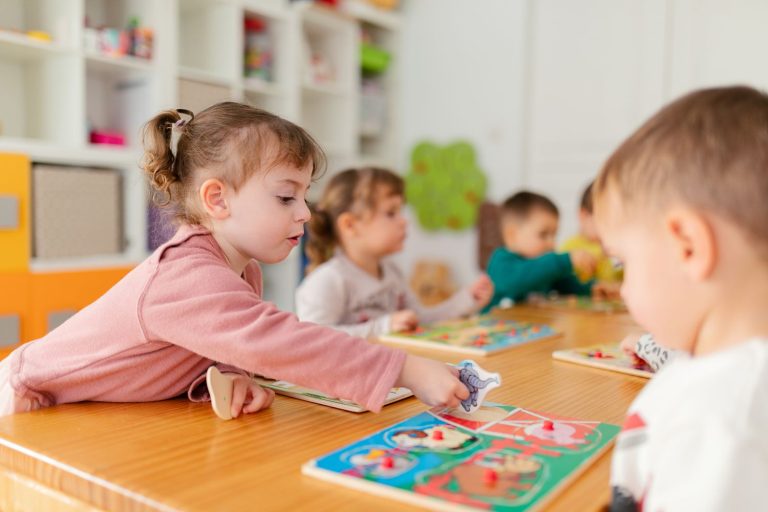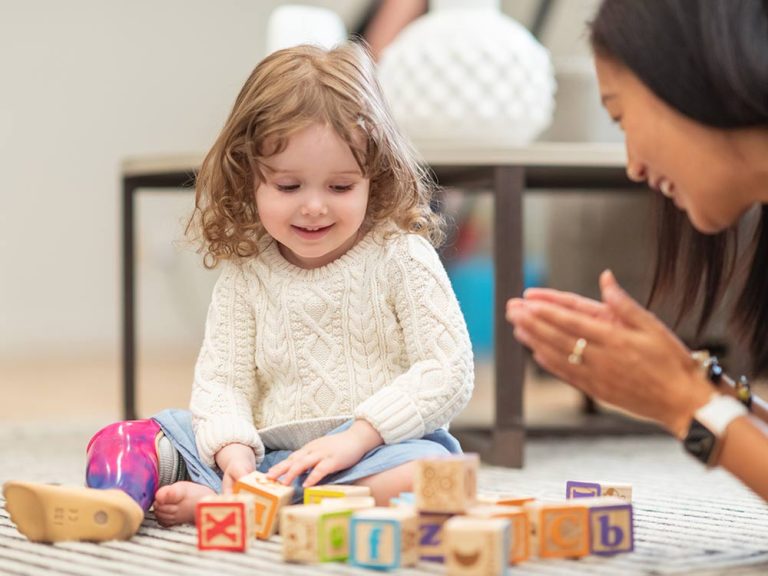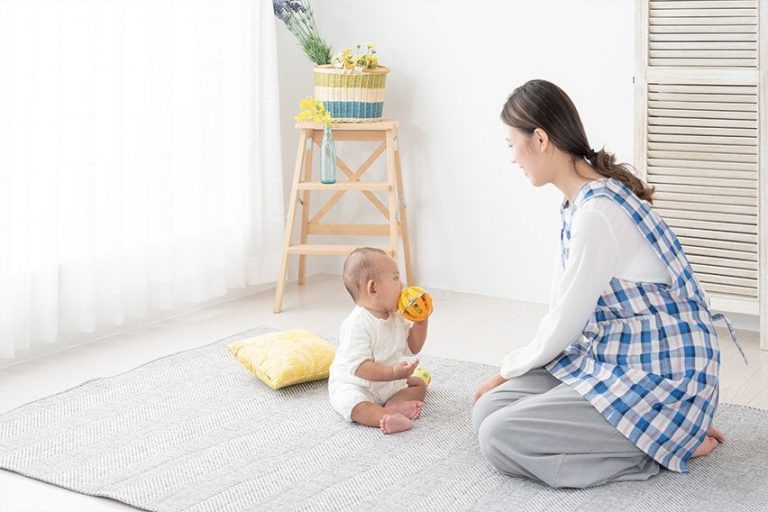What Should My Child Know Before Preschool : Essential Checklist

Before preschool, a child should know basic social skills, such as sharing and taking turns, recognizing colors, shapes, and numbers, following simple instructions, and dressing and feeding themselves. It’s also important for them to have good communication and language skills, be able to take care of their personal needs, and have some familiarity with books and stories.
These skills will help your child adjust and thrive in a preschool environment, setting them up for a successful educational experience. In addition to these cognitive and social skills, it’s also helpful for children to have some exposure to structured routines and basic classroom expectations.
These foundational skills will prepare your child for the academic and social challenges of preschool.
Preschool Prep Essentials
In preparation for preschool, there are several essential skills and foundations that children should be familiar with. These basics are crucial for their success and confidence as they enter the classroom setting for the first time. From cognitive abilities to social interactions, the preschool prep essentials cover various aspects that will contribute to a child’s readiness for this exciting educational journey.
Importance Of Early Learning Foundations
Early development plays a pivotal role in shaping a child’s educational path. It is during these formative years that kids absorb vast amounts of information, develop critical social skills, and lay the groundwork for future learning. Therefore, ensuring that they have a solid foundation before entering preschool is paramount for their growth and educational progress.
Overview Of Essential Skill Categories
These essential skill categories encompass various areas that are integral to a child’s overall development. From language and communication to fine motor skills, a well-rounded set of abilities is necessary for a child to thrive in a preschool environment. By understanding the key skill categories, parents and educators can ensure that children are adequately prepared for their preschool experience.
Social Skills For Pre-kindergarten Readiness
Social skills play a crucial role in preparing your child for pre-kindergarten readiness. These skills form the foundation for successful interactions with their peers and teachers. By focusing on key aspects of social development, you can help your child build the necessary skills to thrive in a classroom environment.
Understanding Basic Sharing And Cooperation
Understanding the concept of sharing and cooperation is essential for successful social interactions at preschool. Children should learn to take turns and share toys or materials with their peers. Encouraging this behavior at home can help in cultivating positive social skills in preparation for preschool.
Communicating Needs Effectively
Effective communication is pivotal for a child’s success in a preschool environment. Encourage your child to express their needs and feelings clearly. Teaching them how to use words to communicate can aid in enhancing their confidence and social skills, setting the stage for a smoother transition into preschool.
Recognizing And Respecting Others
Children must recognize and respect others. Teach your child the significance of treating their peers with kindness and understanding. Emphasize the importance of respecting personal boundaries and nurturing a sense of empathy towards others, creating a foundation for positive social interactions in a preschool setting.
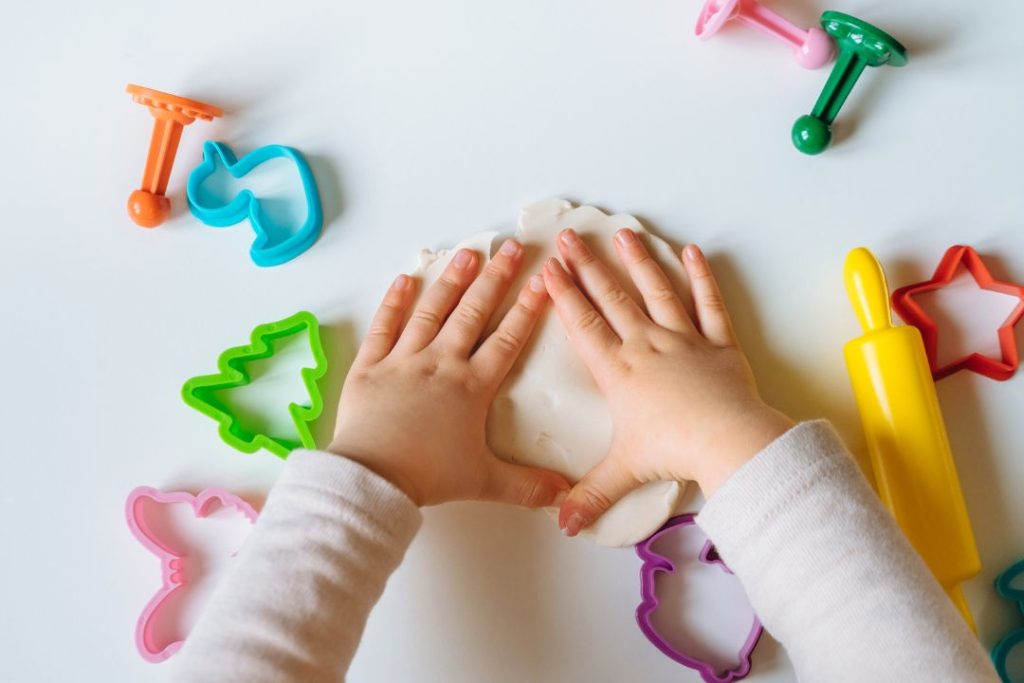
Cognitive Milestones
As your child approaches preschool age, it’s important to ensure they have developed essential cognitive skills to thrive in an academic environment. Cognitive milestones encompass various areas of intellectual growth, including counting and simple math concepts, recognizing letters and starting phonics, and familiarity with common shapes and colors.
Counting And Simple Math Concepts
By the time your child is ready for preschool, they should be able to count from 1 to 10, understand the concept of numbers and quantities, and begin to grasp simple mathematical concepts such as addition and subtraction using visual aids or manipulatives like blocks or counting objects.
Recognizing Letters And Starting Phonics
At this stage, children should be able to recognize and name the letters of the alphabet, both in uppercase and lowercase forms. Additionally, they should be introduced to basic phonics, understanding that letters represent sounds, and exploring simple word families.
Familiarity With Common Shapes And Colors
It’s essential for children approaching preschool age to be familiar with common shapes like circles, squares, triangles, and rectangles, as well as basic colors such as red, blue, yellow, green, and so on. This foundational knowledge will support their early learning experiences in various subjects.

Your Child’s Physical Development
When it comes to preparing your child for preschool, considering your child’s physical development is crucial. Ensuring that your child has acquired the necessary physical skills will help them navigate the preschool environment with confidence and ease. In this section, we will explore the key areas of physical development that children should have a grasp of before entering preschool.
Gross And Fine Motor Skills
Gross motor skills involve the use of large muscles for activities such as running, jumping, and hopping. It’s important for children to have developed these skills to participate in group activities and outdoor play at preschool. On the other hand, fine motor skills are crucial for tasks like cutting with scissors, holding a pencil, and buttoning clothes. These skills are essential for participating in classroom activities and developing handwriting abilities.
Self-care Routines For Young Children
Teaching your child self-care routines is beneficial for their independence and confidence. Encouraging them to dress and undress independently, use the restroom, and put away their belongings will help them transition smoothly into the preschool environment. It’s important to create opportunities for your child to practice these routines at home before their preschool journey begins.
Managing Basic Hygiene Independently
Basic hygiene habits such as washing hands, covering coughs, and using tissues should be ingrained in your child’s routine. By mastering these habits, your child can contribute to a clean and healthy preschool environment while preventing the spread of germs among their peers.
Emotional And Behavioral Growth
Emotional and behavioral development is a crucial aspect of a child’s readiness for preschool. It encompasses the ability to understand and regulate emotions, follow instructions, and pay attention to tasks. Here’s a detailed look at the important factors under emotional and behavioral growth that your child should be prepared for before entering preschool.
Identifying And Expressing Emotions
Children need to be able to identify and express emotions effectively to interact positively with their peers and teachers. Before preschool, they should be able to recognize and name basic emotions like happiness, sadness, anger, and fear. It’s essential for them to understand their own feelings and express them appropriately.
Following Simple Instructions And Routines
Developing the ability to follow simple instructions and routines is a vital skill that helps children adapt to the structured environment of a preschool. They should be able to understand and carry out basic tasks such as putting away toys, washing hands, or lining up when asked.
Developing Attention And Listening Skills
Before entering preschool, children should be working on developing attention and listening skills. They should be able to focus on a task for a reasonable period and respond to simple directions. These skills are essential for meaningful participation in classroom activities and developing social relationships.
Tailoring Prep To Your Child
As you prepare your child for preschool, it’s essential to consider their unique personality, interests, and learning style. Tailoring their preparation to their individual needs and preferences can help make the transition smoother and more enjoyable for them.
Embracing Individual Learning Styles
Every child has a different way of learning and absorbing information. Some may be visual learners, while others thrive through hands-on experiences. Understanding your child’s learning style can guide you in selecting appropriate activities and materials to prepare them for preschool.
Encouraging Curiosity And Questions
Encourage your child to ask questions and explore the world around them. This can be done through engaging conversations, visits to the park or library, and age-appropriate educational toys. Fostering a sense of curiosity will help them develop a love for learning and an eagerness to participate in classroom activities.
Reinforcing Learning Through Play
Play is a child’s natural way of learning. Incorporate educational games, puzzles, and creative activities into their daily routine. This will not only reinforce important concepts but also foster their imagination and social skills, preparing them for interactions with classmates and teachers.
Checklist: Before Preschool Begins
Before your child begins preschool, it’s important to ensure they are equipped with the necessary skills and knowledge to thrive in this new environment. This checklist will help you customize your child’s readiness based on their individual needs and provide a quick review of the necessary milestones to look for.
Quick Review Of Necessary Milestones
- Basic self-care: Ensure your child can independently use the toilet and wash their hands.
- Social skills: Help your child practice sharing, taking turns, and following simple instructions.
- Basic language: Your child should be able to communicate their needs, recognize their name in print, and understand simple stories.
- Fine and gross motor skills: Make sure your child can hold a pencil, use scissors, and participate in physical activities like running and jumping.
- Cognitive skills: Encourage problem-solving, focus, and memory games to strengthen these abilities.
Customizing The Checklist To Your Child’s Needs
Every child is unique, so it’s essential to customize this checklist based on your child’s specific strengths and areas for improvement. Observe your child’s interactions with other kids, their ability to follow instructions, and their comfort level with new situations.
Frequently Asked Questions On What Should My Child Know Before Preschool Checklist
What Social Skills Should My Child Develop Before Preschool?
Before preschool, children should learn basic social skills such as sharing, taking turns, and following simple instructions. Encouraging playdates and group activities can help them get used to interacting with other children and develop important social skills.
How Can I Prepare My Child For The Academic Aspect Of Preschool?
To prepare your child academically for preschool, focus on basic concepts like colors, shapes, letters, and numbers. Reading to your child regularly, engaging in educational activities, and practicing simple tasks like holding a pencil can help build a strong foundation for the academic aspect of preschool.
What Self-help Skills Should My Child Have Before Starting Preschool?
Before starting preschool, children should have basic self-help skills such as dressing themselves, using the restroom independently, and following simple instructions. Encouraging independence and practicing these skills at home can help prepare your child for a successful transition to preschool.
Conclusion
In preparing your child for preschool, it’s crucial to address their physical, social, and emotional development. The checklist we’ve outlined offers a comprehensive guide, ensuring your child is equipped with the necessary skills and knowledge to thrive in a preschool setting.
By nurturing these milestones, you are building a strong foundation for their future academic success.

Emma combines her teaching experience with her writing skills to produce engaging and informative content. She covers a range of topics, from classroom management to innovative teaching techniques.

